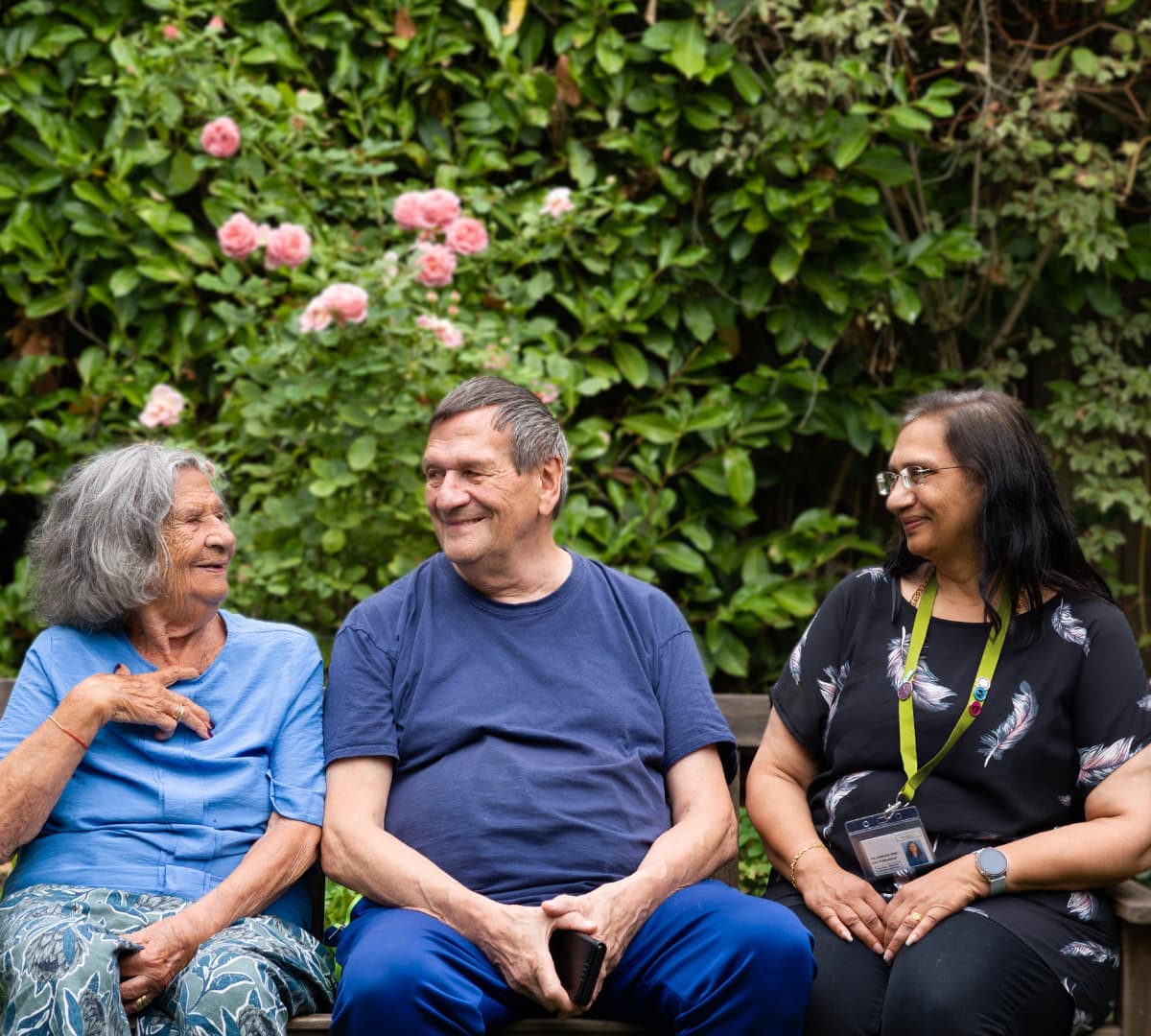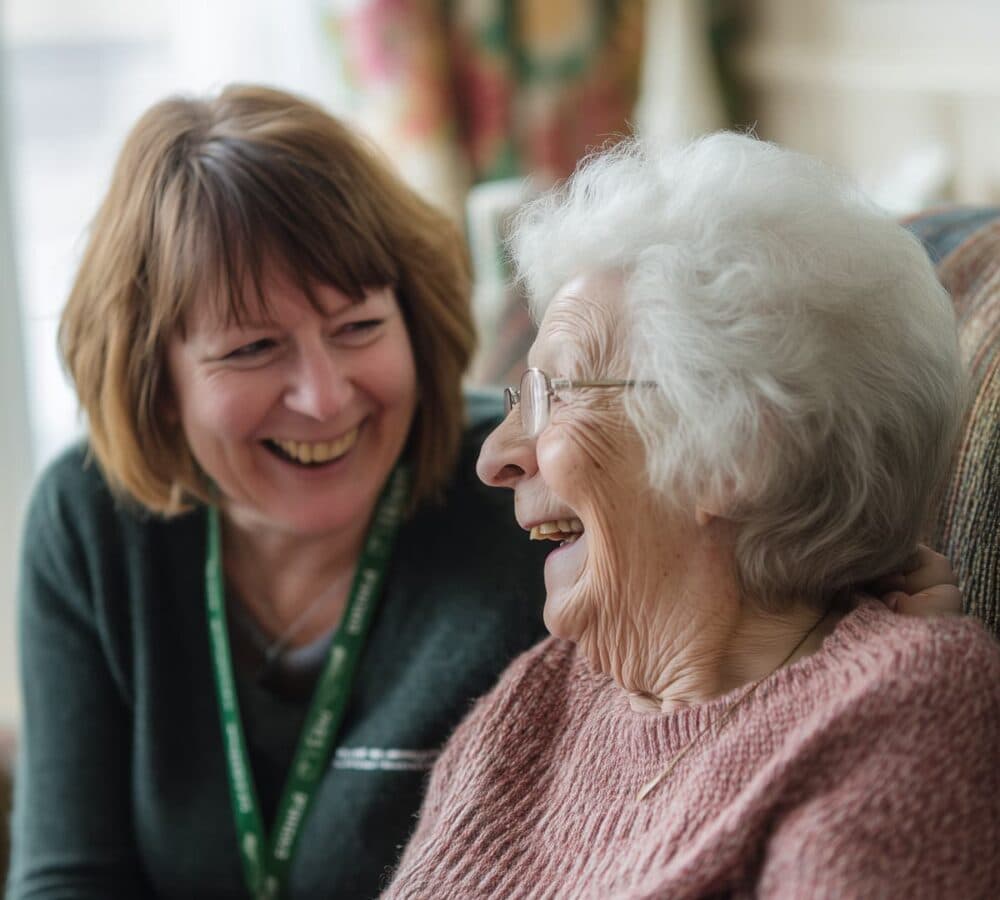Alzheimer’s Awareness Month: How to Care for a Loved One with Dementia at Home

September marks World Alzheimer’s Month, a time dedicated to raising awareness, challenging stigma, and supporting families affected by dementia. For many, the question isn’t just about understanding Alzheimer’s, it’s about how to support a loved one day to day, especially if their wish is to remain at home.
At Home Instead Antrim, Ballymena & Carrickfergus, we see the difference that personalised care makes in helping families feel reassured and older adults stay comfortable in familiar surroundings. We’ve come up with some practical ways to support someone with Alzheimer’s at home and how our team can help.
Understanding Alzheimer’s at Home
Alzheimer’s is the most common form of dementia, affecting memory, thinking, and daily functioning. Living with Alzheimer’s can be challenging not only for the individual but also for their family.
Yet, home remains the place where many feel most secure and at ease. Simple, thoughtful care approaches can reduce anxiety, promote independence, and keep treasured routines intact.

Small Acts Make a Big Difference
Families often find that it’s the little things that matter most: maintaining a favourite routine, engaging in an activity that sparks joy, or simply sitting together and listening. Whether it’s playing familiar music, enjoying a walk in the garden, or encouraging stories from the past, these small moments help preserve identity and connection.
Our Care Professionals focus on these personal touches, offering calm reassurance and adapting to each person’s unique needs. Consistent visits and familiar faces also bring comfort, helping to reduce confusion and build trust.
Practical Tips for Families
Supporting a loved one at home can feel overwhelming, but small adjustments make life easier:
– Keep routines steady: Structure reduces anxiety. Try to keep mealtimes, walks, and bedtime consistent.
– Simplify the environment: Reduce clutter and use clear labels or notes as gentle prompts.
– Communicate calmly: Use short, clear sentences and avoid correcting or contradicting if a loved one is confused. Redirecting the conversation often works better.
– Celebrate small wins: A smile, a shared memory, or a peaceful afternoon are achievements worth acknowledging.
– Encourage reminiscing: Looking through photo albums, listening to favourite songs, or chatting about past experiences can spark positive memories and provide comfort.
– Look after yourself too: Caring can be exhausting. Reaching out for professional support and respite care to give you time to rest while knowing your loved one is in safe hands.
How We Help Families in Antrim, Ballymena & Carrickfergus
Our dementia care is built around patience, understanding, and training. Every Care Professional at Home Instead Antrim, Ballymena & Carrickfergus completes specialist dementia training, ensuring they can provide both practical support and emotional reassurance.
Families know they can rely on us for consistent, one-hour minimum visits, carefully matched Care Professionals, and guidance when care needs change. By working closely with local families, GPs, and community organisations, we make sure care is joined up and supportive at every stage of Alzheimer’s.

FAQs
Q: What is Alzheimer’s disease?
A: Alzheimer’s is the most common form of dementia, a progressive condition that affects memory, reasoning, and daily living. Early signs may include forgetfulness, confusion, or difficulty completing familiar tasks. Over time, symptoms become more pronounced, making personalised care essential.
Q: How is Alzheimer’s diagnosed?
A: Diagnosis usually begins with a GP, who may arrange memory tests, blood work, and referrals to a memory clinic or specialist. A clear diagnosis helps families access the right support, from medical treatment to home care services designed for those living with dementia.
Q: How can I support a loved one with Alzheimer’s at home?
A: Focus on comfort, routine, and reassurance. Go with their reality rather than correcting them, encourage familiar activities like listening to music or looking at photos, and maintain clear, calm communication. Professional dementia care services can provide tailored support and respite for families.
We’re Here for Every Step
Alzheimer’s can bring uncertainty, but families don’t have to face it alone. With the right support, loved ones can remain safe, valued, and connected in the place that matters most: their own home.
To learn more about dementia care in Antrim, Ballymena & Carrickfergus, call us on 028 2544 0800 or make an online enquiry today.